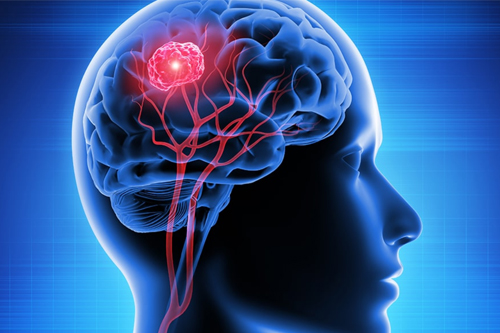
Neurocritical care
Neurocritical care in Nagpur is a medical specialty focused on patients who have experience or are vulnerable to serious, acute injuries to the nervous system. The neuro division of Neurosys comprises some of the best neurocritical care providers in the country. Internationally known for remarkable clinical services, first class research and a commitment to education, our program represents excellence at its best in the field.
The field of neurocritical care medicine is dedicated to the diagnosis and treatment of severe disorders involving the nervous system, such as traumatic brain and spinal cord injury, cerebral edema, rupture of aneurysms, severe strokes, encephalitis, meningitis, refractory seizures, and complex brain tumors.
Our Neurocritical Care Treatments
We use the most advanced and comprehensive therapies such as:
- Therapeutic hypothermia: We cool the body to decrease the inflammatory process and subsequent damage from the brain.
- Intravascular cooling: The cooling of the brain prevents neurologic injury by direct introduction directly into the vessels of the brain.
- Decompressive craniectomy: Your neurosurgeon removes part of the skull in this process to decompress pressure from swelling of the brain due to TBIs or strokes.
We also specialize in neuroendovascular procedures for the treatment of stroke and aneurysm, among other vascular conditions. These new procedures enable a quicker return time with a better risk profile compared to the more traditional surgeries. How will your neurosurgery be performed?
Your neurosurgeon introduces the blood vessels to a catheter known as an endoscope.
The catheter allows stents, balloons, or medication to be administered directly to the region of concern.
Key Conditions Managed in Neurocritical Care
- Traumatic Brain Injury (TBI):
- TBI results from external force to the head, leading to brain damage, swelling, or bleeding. Prompt intervention is crucial to the prevent secondary injury.
- Stroke:
- Ischemic Stroke: Caused by a blockage in a brain artery, leading to reduced blood flow.
- Hemorrhagic Stroke: Occurs when a blood vessel in the brain bursts, causing bleeding. Both types of the strokes can lead to severe brain damage without immediate treatment.
- Subarachnoid Hemorrhage:
- Bleeding into the space between the brain and its surrounding membrane (subarachnoid space), often due to a ruptured aneurysm. This condition requires urgent care to the prevent permanent brain damage or death.
- Intracerebral Hemorrhage:
- Bleeding within the brain tissue itself, leading to increased pressure and damage to surrounding brain cells.
- Status Epilepticus:
- A prolonged or repeated seizure activity lasting more than five minutes without recovery between episodes, requiring urgent intervention to prevent long-term damage.
- Spinal Cord Injury:
- Injury to the spinal cord can lead to the paralysis, loss of a sensation, and impaired organ function. Immediate care can help minimize further damage.
- Brain Infections:
- Meningitis: Inflammation of a protective membranes covering the brain and spinal cord.
- Encephalitis: Inflammation of the brain tissue itself, often caused by infections.
- Both conditions can be life-threatening and require intensive management.
- Acute Hydrocephalus:
- A condition in which excess cerebrospinal fluid builds up in the brain’s ventricles, leading to increased intracranial pressure. Treatment may involve placing a shunt to drain the fluid.
- Postoperative Neurosurgical Patients:
- Patients who have undergone brain or spinal surgery may require neurocritical care for close monitoring and management of potential complications.
Key Interventions in Neurocritical Care
- Intracranial Pressure Monitoring (ICP):
- A critical aspect of neurocritical care, especially in patients with traumatic brain injury, stroke, or brain tumors. Monitoring helps detect dangerous increases in pressure within the skull that could lead to brain herniation.
- Mechanical Ventilation:
- In patients with impaired consciousness or respiratory failure, mechanical ventilation is used to ensure adequate oxygen delivery and to protect the airway.
- Hemodynamic Monitoring:
- Continuous monitoring of blood pressure and heart function to maintain adequate perfusion to the brain. Conditions like stroke or TBI may require precise control of blood pressure.
- Sedation and Pain Management:
- Sedatives and pain relief are often used to control agitation, pain, and prevent secondary injury by reducing metabolic demand on the brain.
- Seizure Management:
- Anticonvulsant medications are administered to control seizures. Continuous EEG (electroencephalogram) monitoring may be used to detect and manage seizures, especially in patients with status epilepticus.
- Therapeutic Hypothermia:
- In certain cases, cooling the body to lower the core temperature can help protect the brain from further damage after a traumatic injury, stroke, or cardiac arrest.
- Cerebrospinal Fluid Drainage:
- In conditions such as hydrocephalus or brain hemorrhage, external ventricular drains (EVDs) may be placed to relieve pressure by draining excess cerebrospinal fluid.
- Thrombectomy and Thrombolysis:
- For ischemic strokes, thrombectomy (mechanical removal of a blood clot) or thrombolysis (clot-busting medication) may be used to restore blood flow to the brain.
Neurocritical Care Unit (NCU)
Patients requiring neurocritical care are typically managed in a Neurocritical Care Unit (NCU), which is a specialized intensive care unit equipped to provide continuous monitoring and treatment for critically ill neurological patients. These units are staffed by a multidisciplinary team of healthcare providers, including:
- Neurointensivists: Physicians specializing in critical care for neurological conditions.
- Neurosurgeons: Surgeons who may intervene in cases requiring surgery (e.g., for brain hemorrhage or spinal injuries).
- Neurologists: For diagnosing and managing complex neurological conditions.
- Critical Care Nurses: Providing 24/7 monitoring and management of neurocritical patients.
- Respiratory Therapists: Ensuring proper respiratory support for patients with compromised breathing.
- Pharmacists, Physical Therapists, and Rehabilitation Specialists: Involved in managing medications, rehabilitation, and long-term recovery planning.
Neurocritical Care Medicine
At our Neurosys Multispeciality Center, we perform several key procedures including Craniotomy, which is primarily for the excision of brain tumors; V-P Shunt Surgery for treating hydrocephalus; surgeries for epilepsy; and operations targeting brain stem glioma. Beyond these, we offer a range of other neurosurgical services. If you have any questions that are not answere, please contact us through our Contact Us or Book your Appointment.
